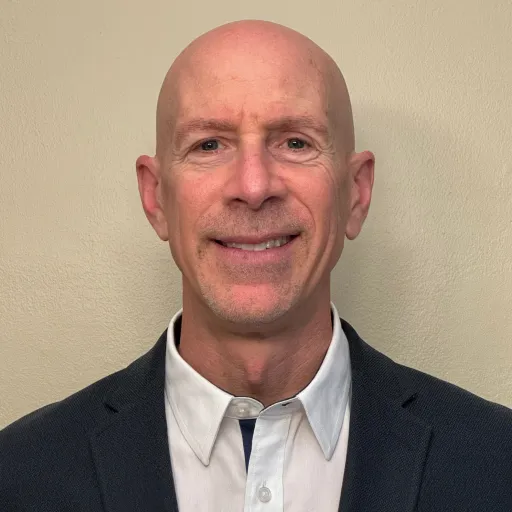
Why Does My Wife Yell at Me? Understanding Emotional Abuse in Marriage
Exploring the reasons behind frequent yelling in relationships and recognizing when it crosses the line into emotional abuse.
Understanding the Root Causes of Yelling in Marriage
Yelling is often a reaction to stress or frustration. However, when it becomes frequent or excessive, it can signal deeper relationship issues, including emotional abuse. This section explores common reasons why partners may resort to yelling and how to identify when it has become a harmful behavior.
What Triggers Yelling in Relationships?
Yelling can stem from various sources, such as frustration over unresolved issues, stress, or emotional disconnection. While occasional arguments are normal, repeated outbursts can indicate unhealthy dynamics within the marriage.
Recognizing the Signs of Emotional Abuse
Yelling can be a form of emotional abuse, especially if it is used to manipulate or control you. It’s crucial to recognize the warning signs of emotional abuse and how it can affect your mental health. Prolonged exposure to emotional abuse can lead to anxiety, depression, and lowered self-esteem.
How Emotional Abuse Impacts Mental Health
Living with emotional abuse takes a toll on your mental well-being. Persistent yelling and verbal aggression can leave you feeling anxious, isolated, and unsure of your own worth. This section dives deeper into the psychological effects and why it’s essential to take action.
Healthy Communication Strategies in Relationships
Open and respectful communication is vital to any healthy relationship. If yelling has become a regular occurrence, this section outlines steps to improve communication and establish boundaries that foster mutual respect.
Setting Boundaries and Finding Solutions
Effective communication starts with setting clear boundaries. You and your partner can work together to develop healthier ways to express emotions without resorting to yelling or abusive behavior.
Seeking Professional Help for Emotional Abuse
If emotional abuse is present in your marriage, seeking professional counseling is a critical step towards healing. A therapist can help both partners understand the root causes of the abuse and guide them towards healthier patterns of behavior.
Why Therapy is Crucial in Abusive Relationships
Therapy can provide a safe space to address the underlying issues fueling the abuse. With the help of a professional, you and your partner can work through emotional challenges, rebuild trust, and find ways to repair your relationship.
Expert Therapists Specializing in Domestic Issues
Our compassionate team is here to support your journey of healing, and reclaiming control over your life.
Meet Some of Our Expert Therapists

Kenneth Miyake
My approach has always been what Carl Rogers called the power of the "therapeutic relationship", which includes: unconditional positive regard, compassion, genuineness, empathy, and congruency. We help to empower the client by encouraging them to find their own solutions, which always lie within them.
View Kenneth's Profile
Kyle Harris
I have served in a variety of roles within the mental health field, including private practice, juvenile detention, and school districts. Across each setting, I've remained committed to a person-centered approach, prioritizing strong, healthy relationships as the foundation for growth and progress.
View Kyle's Profile
Elizabeth Turek
My therapeutic style is integrative and holistic, drawing from Client-Centered Therapy, Gestalt Therapy, Reality Therapy, and Regression Work. I incorporate mindfulness practices to help clients become more grounded in the present moment, and I emphasize self-awareness as a key to personal growth and emotional healing.
View Elizabeth's Profile
Bret Bertrand
While we cannot change the difficult experiences from the past, we can strive together to understand and overcome any negative impact you currently have in your life. I believe together we can develop a path toward healing, health, and freedom to keep moving forward.
View Bret's Profile
John Komperda
It is my belief that every client has their own innate ability to heal themselves. My job as a clinician is to foster an environment which is conducive to develop greater clarity, connection, and insight into their problems, which can lead to resolution and transformation.
View John's ProfileInsurance Coverage Made Simple
We accept most major insurance plans and offer low self-pay rates to ensure quality care is accessible to everyone. Your well-being is our priority, and we're here to help regardless of your financial situation.
FAQ: Common Questions About Domestic Abuse From Woman
Why does my wife yell at me so much?
Is yelling a form of abuse in marriage?
What should I do if my wife yells at me?
Why does my wife yell at me when she's angry?
Can emotional abuse affect my mental health?
How can I stop my wife from yelling at me?
Why does my wife yell at me for no reason?
When should I seek help if my wife yells at me?
Related Articles

Emotionally Unavailable Men: Understanding and Coping
Is he emotionally distant? Learn to recognize signs of emotional unavailability in men, understand its causes, and explore healthy coping strategies.

Premarital Counseling: Building a Strong Foundation for Marriage
Premarital counseling in Dupage County, IL, offers couples tools for a lasting marriage. Integrative Family Counseling provides expert therapists for premarital support.

In What Ways Should a Partner Improve Your Life?
Discover how a partner should positively impact your life. Integrative Family Counseling offers therapy for individuals and couples in Dupage County, IL.

Why Is My Wife Hitting Me? Understanding and Seeking Help
Learn why your wife may be hitting you and how to seek help for domestic violence. This guide covers the reasons behind such behavior, the importance of recognizing abuse, and the steps you can take to protect yourself and find support.

